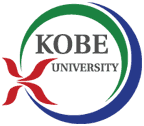
The Japanese-Norwegian Partnership in Space Simulations between the University of Oslo and Kobe University and Kyoto University provides unique study opportunities for students interested in space science and numerical modeling. It is open to all students in physics, mathematics and computational sciences. The collaboration is centered on numerical simulations of space related problems, such as interaction between sounding rockets and plasma, cometary environment, asteroids and lunar surfaces, or plasma turbulence. Participating students will learn how to use and create large scale numerical models, run them on supercomputers, and relate their results to ongoing space missions. Another part of the programme focuses on the use of computers in space science, including data analysis techniques.
The partnership includes:
- Intensive 4DSpace Numerical Workshops in Japan and Norway.
- Schools on Computers in Space Science.
- Student exchange program on master and PhD level.
- Conferences and workshops.
- Mobility of faculty staff.
4DSpace School on Space Mission Data Analysis
The first 4DSpace School on Space Mission Data Analysis will be organised in Kyoto, Japan, between 20-27 April 2024. The school will cover such topics as data analysis techniques, basics of space plasma physics, space missions and space instrumentation, interpretation of data from space missions. A study project with the use of real data from space experiments is envisioned.

The school is open to bachelor (2-3rd year) and master students in physics or mathematics or closely related disciplines. PhD students are also eligible to apply if the school is aligned with their research work.
If you wish to participate, you need to send your application before the deadline 4 of February by email to: kobe-oslo@fys.uio.no with the email title "Kyoto School Application". Application deadline: 4 February 2024.
Applications should include: short CV and a motivation letter (max. one page), as well as an overview of courses taken so far with grades. There is a limited number of seats available on the flight to Japan and the selection will be based on the application. The application should be written in English, but the overview of courses can also be provided in Norwegian.
The language of instruction will be English. The organisers will provide transportation starting at the Oslo airport and accommodation in Japan. You have to arrange the travel insurance and transport to/from the Oslo Airport by yourself.
4DSpace Numerical Workshops
The workshops are joint intensive study programs where students will learn different aspects of numerical simulations with particle-in-cell codes, running experiments on supercomputers, and basics of space science. The Japanese-Norwegian student teams will work in groups on problems related to the ongoing research projects for sounding rocket experiments. The research-based projects are expected to result in scientific reports or publications.
The workshops are open for students in their last year of the bachelor degree and master students. PhD students are also eligible to apply.
In year 2024 two 4DSpace Numerical Workshops will be organized:
13th 4DSpace Numerical WorkshopLocation: Kobe, Japan.Date: 22-29 June 2024.
Application deadline for students from UiO: 9 February 2024.
|
 |
|---|---|
14th 4DSpace Numerical WorkshopLocation: Oslo, Norway.Date: September 2024.
Application deadline for students from UiO: 01 September 2024. (it is encouraged that students apply for both workshops at the same time) |
 |
How to apply:
Send the application before the deadline by email to: kobe-oslo@fys.uio.no with a title of the message "Kobe-Oslo Workshop Application".
The applications (in English) should include: short CV and a motivation letter (max. one page), as well as the transcript of grades and overview of courses taken. Selection will be based on the application and optional final interview with the applicant.
The language of instruction will be English. The organizers will provide transportation (starting from Oslo airport) and accommodation for the workshops for traveling students. You have to arrange the travel insurance by yourself. Students should have some background in numerical simulations. It is expected that students participate in two workshops, one in Japan and one in Norway, and that they complete a scientific group report summarizing the project.
Students from Kobe University should apply through their home university. Due to logistics, the deadlines are different for students from Norway and Japan.
Kobe-Oslo student exchange program
A short and medium term exchange program between Kobe University and University of Oslo is available for master and PhD students. Students from UiO working on numerical projects can spend between one and three months in Japan to work on their projects under joint supervision. The Kobe-Oslo scholarship will be provided for successful applicants.
How to apply:
Contact: kobe-oslo@fys.uio.no for possibilities and further information.
Students from Kobe University should apply through their home university.



Current funding of the programme is through the Norwegian Research Council INTPART programme (2023-2027).

Previous funding:

The Kobe-Oslo project was funded through the UTFORSK 2016 Partnership Programme administered by DIKU, the Norwegian Agency for International Cooperation and Quality Enhancement in Higher Education (formerly SIU: Norwegian Centre for International Cooperation in Education). The funding is provided by the Norwegian Ministry of Education and Research.
The funding for Kobe-Oslo project is granted for years 2017-2020 through project UTF-2016-long-term/10054.
This long-term partnership builds upon previous activities funded by SIU together with the Research Council of Norway in years 2015-2016.